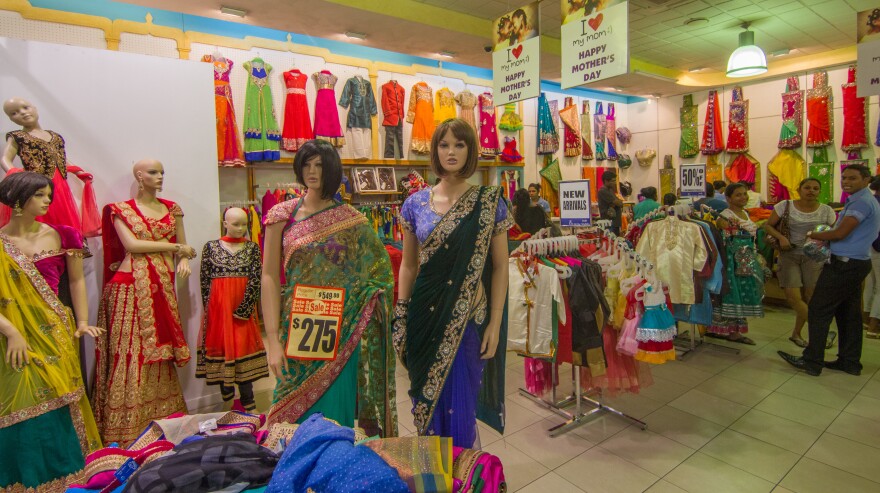Fiji gained independence from British colonial rule nearly 50 years ago, this month. For Fijians in the South Pacific and around the world, this is a day for celebration. Here in Hawai’i, celebration means partaking in the Fijian drink of choice. HPR’s Ku’uwehi Hiraishi has this story.
Daya Nand is celebrating Fijian Independence Day in Kalihi with a cup of the national drink of his birth place - yaqona – more commonly known in Hawai’i as ‘awa or kava elsewhere in the Pacific.

The mildly narcotic drink made from mixing the powdered root of the pepper plant with water results in a numb feeling in the mouth and a relaxed feeling in the body.

Yaqona remains part of daily life in Fiji. But the Fijians he’s met in Hawai’i are drinking something else.
“Fijians are drinking Heineken, and they don’t like kava, and they ask, ‘You’re drinking that stuff?’ And I say, ‘Hey, don’t say stuff. If you don’t drink, don’t spoil the name too, k?” says Nand.

Nand moved to Hawai’i 15 years ago to work as a finishing carpenter. Since then he’s found success in the construction and real estate business, but it’s his kava business that he’s most proud of. Fiji Kava has made him an ambassador of Fijian culture here in the islands.
“I am here as a messenger, and I am bringing a message from Fiji – what is Fiji, where is Fiji, and who lives in Fiji,” says Nand.
But here’s where it gets tricky. Nand is not ethnically Fijian, he comes from the large population of ethnic Indians brought to Fiji to work the sugarcane fields in the late 1800s. And he gets the question a lot.

“They see me Indians, and they Daya, you’re Indian but you say Fijian. I say, yeah, I’m fourth generation,” says Nand, “What can I say? Even my fourth generation I don’t know where they came from. So which one do I take? I take the one I know the culture, I know the walk, I know the talk.”
Identity to Nand isn’t about his ethnicity – it’s about him keeping the culture of his homeland alive. Nand is quick to explain the dos and don’ts of kava culture – First, clap. Not your typical audience clap. You want to cup your hands and give it a nice, deep clap.

Second, you cheers by saying “Bula Vinaka!”
“Bula Vinaka means have a great life,” says Nand.
And last, you chug. You don’t want the powder to settle at the bottom.

While deep ethnic divisions between the indigenous Fijians and the Indians remain, Nand recalls the last time he felt like the people of Fiji were united behind a common cause. That day was October 10, 1970, he was nine years old. Fiji declared its independence from the British Crown, which had colonized the island nation since 1874.
“People were happy!” says Nand, “There was no Indians, no Fijians. Everybody was counted as Fijian.”
While Nand admits that level of ethnic unity seems highly unlikely anytime soon, he points to the wisdom of Fijian kava drinking protocol.
“You cannot clap with one hand,” says Nand, “You’ve got to bring both hands to clap to drink together.”
That being said, it’s time for a kava break.
“Bula,” says Nand.
Bula Vinaka.




